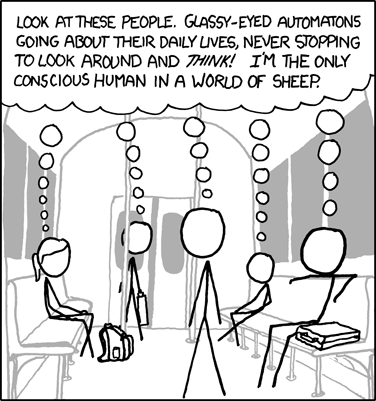First you completely get it wrong, now you try to hide the mistake behind saying that it doesn't matter anyway. No, it's not sophistry, it's a crucial moral difference. It's the difference between aggression and self defense.I increasingly don't see positive vs negative rights as a particularly useful distinction: the positive vs negative right issue is the sophistry and nitpick, though a slightly lighter term may be more correct: there may be a bit of a difference, but not as large as often assumed, and not as crucial to arguments.
It isn't a tautology. It says aggressing against another is morally bad. This is no more a tautology than the statement that killing someone is bad. And a whole ton of stuff can be derived from this point. For example: taxation. Taxation requires initiating force against others. Therefore it is morally bad. Same with shooting an arbitrary person for no reason, but not self defense.NAP, especially with how broadly aggression seems to get defined, and the general softness of its use, its generally seems to devolve into a teleology as we mean linguistically where your just saying the same thing twice. "Wrong things are wrong". Bad=Bad might be a logically correct statement, but it doesn't advance anything either. And as a statement I'm not sure its even actually foundational enough to be an axiom.
Perhaps your argument is that 'aggression' is I'll defined, and can mean anything to anyone? Fine, I'll define it. It's forcefully interfering with another (or their property) without their consent. I've no doubt there is a better, more precise definition, but this works well enough to deal with the problem at hand, conscription.
This is a fair point, but note that by its moral realist definition of what is and isn't moral, it doesn't need the added statement of moral Realism as an axiom. It basically includes the principle for what it covers.(as an aside, this is one of the reasons I consider NAP not really axiomic in and of itself: it jumps the shark a bit by assuming moral realism. This is a common thing though in regular conversation, so not an immense hit against it per say.)
As for your statement of what constitutes a well reasoned morality, I'd say it's pretty decent, but you still are very vague on what your morality is. What are the duties? What are the virtues?
Also, I'd say that the idea that "a theory that fails in the real world isn't a real theory" is flawed. All Christians but Christ (and Mary in catholicism) are sinners according to christianity, and to that extent it fails. It doesn't mean that trying to live up to the ideal is worthless despite being hopeless. I'd say the same thing about the NAP, and really any moral system.
Last edited:

